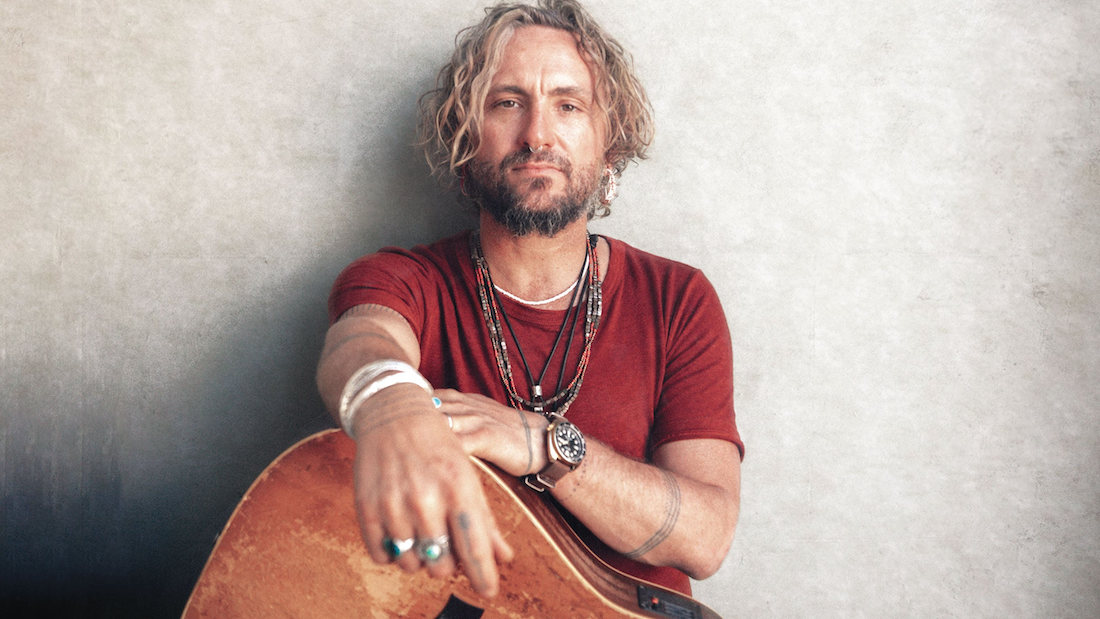
Meet John Butler…
John Butler has just released his new instrumental album, Still Searching, and is embarking on a tour with percussionists Michael Barker and Michael Boase that will bring him to Blues at Bridgetown (solo) on Saturday, November 9, and the Octagon Theatre on Thursday, November 14. He chats with BOB GORDON about the personal crises that led him into his present era of songwriting and performance.
Your new instrumental album, Still Searching, follows on from your ambient album, Running River, which form part of a series called Four Seasons. Can you tell me about this body of work and what led you into it?
I was trying to make one album, actually. I started that about four years ago, trying to make an album by myself. And I ran into all kinds of interesting journeys along the way. I had a lot of fun and created a lot of great stuff, and then slowly all the colours started fading into the brown mud, and my computer died, and I was in over my head as far as self-engineering an album, definitely not my expertise. And the album went from being a place of beautiful solace to kind of an anxiety-inducing panic, of ‘I don’t even know what to do with all this’, and I kind of had a walk away from it all.
At one point it was just like every time I opened a computer and had to work on it, it just made me so anxious and frustrated. Nothing would work; the computer was crashing. I kind of walked away. I took a beat, you know? Basically, like maybe I learned a lot along the way, and in that surrender, I thought, ‘why don’t you start simply, do something, a side thing that you’ve been wanting to do for the last two decades?’
So it was really simple and with no expectations for the ambient album Running River, and this idea of four seasons like, ‘just heal. Lots of things have been happening over the last four or five years: losing parents, COVID, all kinds of personal stuff. So yeah, heal and then begin again. The idea of beginning again. Go back to your first recording, which was a busking tape, an instrumental album’.
And that’s where the second season with Still Searching falls, because it is a kind of beginning again. And then the next season was the solo album, John Butler… not the trio. And then, just like I did after the busking album, the fourth season will be a band album, which is probably a couple years off, but I just finished the third season as well, Spectrum. So yeah, we’re here at season two, and it’s hilarious how in trying to make one album and failing I ended up birthing three in one year (laughs).
It’s an amazing turnaround. Had you as an artist faced that sort of existential crisis like that before, or is it kind of an eternal push and pull as it is?
Good question. I think it’s a bit of both to tell the honest truth. I mean, there’s always an eternal hankering and jonesing for a strange kind of never-quite-scratch-the-itch when it comes to making art for me, like I’m still looking for the sound that I hear in my head. So that’s an eternal one that’s always kind of moving and kind of changing the goalposts as I reach certain sounds or meet certain requirements that the music wants of me.
But at the same time, there’s a lot going on in my life. My wife and I have been married for 23 years, so there’s what’s going on there with a 16-year-old kid who’s being a 16-year-old. Both our fathers died within 40 hours of each other whilst we were both separately giving them palliative care—one in lockdown in Victoria with Danielle and then me at our family home in Margaret River—looking after these patriarchs of our family.
Then the peaking of anxiety, that kind of got pretty terrible… And then that album, kind of in the mix of it all, was a little bit of solace and retreat from the intensity of life. And then once that stopped working, it kind of felt like I was at a dead end in the alley. It was like, ‘there’s nowhere for you to go but through. You can’t go around, can’t go under, can’t go over; you’ve gotta get through it, and this is the process’. I was thankful that figuratively and metaphorically it has its own process and that this is what you need to meet. And if you can’t meet it in life, I will show you through music. It was inspirational in a lot of ways.
There’s a nod you’ve mentioned to your first recording from 1996, Searching For Heritage, which was a recording of what you were doing at the time, namely busking and playing a lot of instrumental music. What was it like to embrace that period again, a time before you became ‘John Butler’ as the name on the cover of a record?
It was good. I mean, Running River, the ambient album, was kind of the beginning… Make a 10-song, 10-minute-long ambient songs album. I already knew I wasn’t trying to get on the radio or grab the masses’ attention; it was something with zero expectations. And I think Still Searching the way it followed on, I knew that there’s people interested because of the music I play and the musical movements that happen sometimes after the song has done its dash and goes on an exploratory musical journey. I mean, there’ll be an audience, but essentially my own music’s always going to be my own kind of vessel to meet myself.
And once again, it was something I always wanted to do—the version 2.0 of that album. Because, as an artist and a guitarist, I feel like making instrumental music. I’m still very inspired by instrumental music, and so it was once again I’ll meet myself. I’m really not trying to break the chart or anything like that.
How have you found working without the gravitational pull of vocal arrangements?
It’s nice to meet that part of my musicianship and do some arranging, some production, but purely not poetic, in terms of prose. That was fun, and also, it’s like the music always challenges me. Some of it takes a lot of rigour to play properly, you know? And that’s nice. It’s nice to have music make you meet yourself in that sense, like, ‘okay, I want to learn how to run 10 km’ but then, well, that’s going to take time; you have to build up to that. And some of these songs definitely made me work. They pushed my guitaring ability, or at least made me meet that kind of fire of when I used to play eight hours a day on the street. I’d be just manically playing instrumentals all day long.
So it’s like, ‘okay, cool. You want to write that kind of music? Well, it’s 20 years on. You’re actually a better guitarist, and well, here’s the music’. It’s like, ‘oh shit… okay, I better practice’ (laughs).
